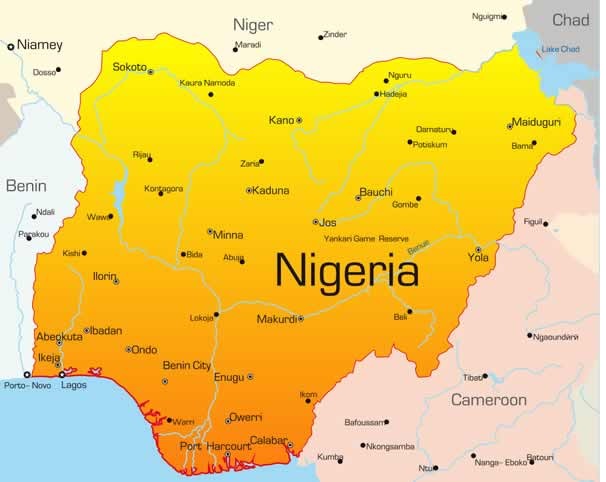Nigeria with a federal government, 36 state governments, and 774 local government councils, practices federalism. This means powers and functions of government are shared between the federal government and the other tiers of government. As a country, Nigeria has benefitted from this system of government in so many ways. However, there are areas where federalism has been observed to be weak in Nigeria. In this article, we will discuss the strengths and weaknesses of federalism in Nigeria.

The strengths and weaknesses of federalism in Nigeria would be discussed below:
- Strengths of Federalism in Nigeria
Nigeria has benefitted from federalism in several ways since she adopted this system of governance. We’d be exploring the strengths of federalism in Nigeria in this section of the article. Read on.
- Brings Government Closer to the Masses
A major strength of federalism in Nigeria is how it brings the government closer to the governed. As all the powers and functions of the government are not concentrated with the central government as in the unitary system of government, the states and local governments become closer to the people than ever.
This closeness of the state and local governments with the governed makes it easier for the governed to direct their issues and concerns to the government. As a result of the proximity of the state and local governments with the masses, the government gets a better understanding of local issues and demands. This makes the government more responsive to citizens’ needs.
- Promotes Citizen Participation
Another advantage of federalism in Nigeria is that it fosters citizen participation. As the government is closer to the citizens, they (the masses) can easily participate in policy-making and law-making, among other things. Several records exist of how grassroots citizen participation influenced government policies and laws of states in Nigeria.
- Checkmates Tyranny
The division of power between the federal government and the other levels of government serves as a means of checkmating tyranny in Nigeria. Since the powers of government are not concentrated with just the central government, federalism thus serves as a deterrent to tyranny.
- Encourages Efficient Government
Since the component units of government have their powers and functions, government tends to become more efficient. This is so because every tier of government, especially those closer to the people, is empowered to solve some of the problems faced by their subjects. More so, since state and local governments understand the unique challenges and desires of their subjects, government actions can be tailored to solve those problems.
- Fosters Innovation in Law and Policy
With state governments empowered to create laws and policies for their respective states, innovation in policy and law-making is hereby encouraged across the country. This creates a sort of laboratory of democracy in which the federal and other state governments can learn from the successes and failures of policies implemented by a state government. Hence, policies that are found to have succeeded in a state can be implemented in other states (even at the national level) of the country.
- Weaknesses of Federalism in Nigeria
Federalism, just like any other system of government, is not a utopian construct. Expectedly, there are areas where federalism falls short of commendation, particularly as it relates to Nigeria. Read on as we explore the weaknesses of federalism in Nigeria.
- Brings About Conflict of Authority
There is usually the issue of conflict of authority between the central government and the other tiers of government, especially state governments. For example, in the past weeks when CBN Governor Godwin Emefiele, endorsed by President Buhari, announced that the old N500 and N1000 notes were no longer legal tenders, several state governments stated otherwise. This and many other instances abound whereby conflict of authority occurs.
- Lack of Accountability in Government
Another downside of the practice of federalism in Nigeria is the lack of accountability among the component units of government. Sometimes, state governments do not do what they ought to do, citing it’s the federal government’s responsibility instead. And as many Nigerians do not know exactly the powers of the component government units, the blame game between the federal government and state governments continues and no side takes responsibility.
- Creates Inequalities Between States of the Federation
Federalism allows for regional inequalities between different states of the federation. For example, some state governments may spend more on education than others. As a result, children in these states that spend more on education tend to be more academically exposed and advanced than their counterparts in states that spend less on education. This disparity is evident in state taxes, infrastructural development, welfare programmes, etc among the different states in the country.
- Blockage of Nationalist Policies by States
State governments can sometimes fight against certain laws and policies brought forward by the central government for implementation across the country. Although this is sometimes helpful in ensuring checks and balances, these obstructions may prevent well-meaning policies from being implemented. An example is how different state governments sued for CBN’s directive to phase out the old N500 and N1000 bills to be overturned. At the time of writing this article, the use of the old N500 and N1000 bills has been extended to December 31, 2023, per Supreme Court’s ruling.
- Federalism is Expensive to Maintain
Federalism is an expensive system of government to run. In Nigeria, the various tiers of government are known to maintain a robust workforce. This translates to a huge chunk of the government purse being spent on maintaining the robust workforce of the various component units of government.
- Promotes Regionalism Over Patriotism